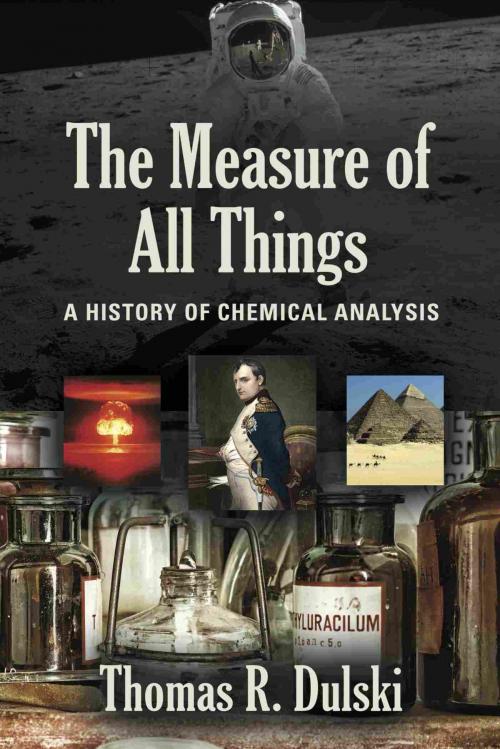The Measure of All Things: A History of Chemical Analysis
Nonfiction, Science & Nature, Science, Chemistry, Analytic| Author: | Thomas R. Dulski | ISBN: | 9781632637154 |
| Publisher: | BookLocker.com, Inc. | Publication: | June 18, 2018 |
| Imprint: | Language: | English |
| Author: | Thomas R. Dulski |
| ISBN: | 9781632637154 |
| Publisher: | BookLocker.com, Inc. |
| Publication: | June 18, 2018 |
| Imprint: | |
| Language: | English |
In the broadest sense, this book tells the story of mankind's quest to understand, and so potentially control, the material world. This pursuit began with analysis and measurement in the waking dawn of human rationality and continues to this day. As we follow the exponential growth of this endeavor throughout time the narrative is balanced with the complementary growth of science and contrasted against the unwinding spool of social and political history. Each chapter opens with an overview of the historical context, followed by a survey of the state of science, and concludes with specific analytical detail. As the discipline of chemical analysis advances through time our treatment of the background increases in rough proportion; and so the time-slice chapters begin with millennia and end in decades. Along our path through time we meet some familiar scientists (Einstein is here, and so is Madame Curie), but we also meet a host of strangers (to all but scholars of history or the history of science). It is their work that remains our main focus, as it has in small and large ways, elevated human understanding and improved life in today's world.
In the broadest sense, this book tells the story of mankind's quest to understand, and so potentially control, the material world. This pursuit began with analysis and measurement in the waking dawn of human rationality and continues to this day. As we follow the exponential growth of this endeavor throughout time the narrative is balanced with the complementary growth of science and contrasted against the unwinding spool of social and political history. Each chapter opens with an overview of the historical context, followed by a survey of the state of science, and concludes with specific analytical detail. As the discipline of chemical analysis advances through time our treatment of the background increases in rough proportion; and so the time-slice chapters begin with millennia and end in decades. Along our path through time we meet some familiar scientists (Einstein is here, and so is Madame Curie), but we also meet a host of strangers (to all but scholars of history or the history of science). It is their work that remains our main focus, as it has in small and large ways, elevated human understanding and improved life in today's world.















